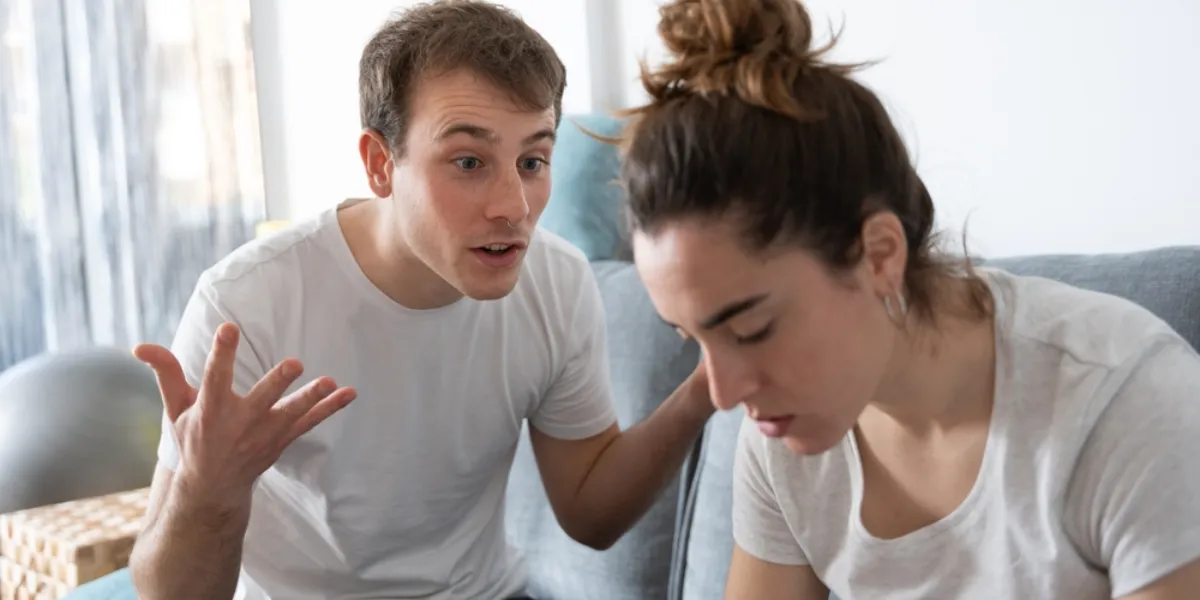
How Does Social Anxiety Affect the Brain?
Imagine walking into a room full of people and feeling your heart race, palms sweat, and thoughts
spiral into intense worry. It's normal to feel nervous in situations like job interviews or public
speaking, where a few butterflies in your stomach are expected. However, for those with social
anxiety disorder, also known as social phobia, even ordinary interactions can trigger intense
anxiety, self-consciousness, and embarrassment.
People with social anxiety disorder live with a constant fear of being observed or judged negatively
by others. This fear can lead to avoidance behaviors that severely disrupt their lives. In this
blog, we'll dig into practical strategies to handle social anxiety, helping you to reclaim control
and improve your mental well-being.
What Is Social Anxiety?
Social anxiety, or social phobia, is when people feel extreme fear and unease in social situations.
This fear is often irrational and can lead to avoidance of social interactions, making it difficult
to form relationships, succeed at work or school, and enjoy daily activities.
Areas of the brain affected by social anxiety, such as the amygdala and prefrontal cortex, play a
key role in processing fear and regulating emotional responses

Did You Know?
‘SOCIAL ANXIETY DISORDER AFFECTS APPROXIMATELY
7% OF THE GLOBAL POPULATION.’
Common Symptoms of Social Anxiety
- Excessive worry about social situations
- Fear of being judged or embarrassed
- Avoidance of social interactions
- Physical symptoms like sweating, shaking, or a racing heart
- Difficulty speaking or making eye contact
How does Social Anxiety Affect the Brain?
Different types of social anxiety affect the brain in several ways, altering both its structure and function. Here are some key areas of the brain impacted by social anxiety:
⦁ The Amygdala
The amygdala is a small, almond-shaped structure located deep within the brain. It’s essential for handling emotions, especially fear and anxiety. In people with social anxiety, the amygdala is often overactive. This means that social situations can trigger an exaggerated fear response, making the individual feel excessively anxious or panicked.
⦁ The Prefrontal Cortex
The prefrontal cortex is responsible for higher-level thinking, decision-making, and regulating emotions. In individuals with social anxiety, this part of the brain may have difficulty controlling the fear response generated by the amygdala. As a result, anxious thoughts and worries can become overwhelming, making it hard to think clearly and rationally in social situations.
⦁ The Insula
Neurotransmitters are chemicals that send messages between nerve cells in the brain. Several neurotransmitters are involved in anxiety, including serotonin, dopamine, and gamma-aminobutyric acid (GABA). Imbalances in these chemicals can contribute to the symptoms of social anxiety. For example, low levels of serotonin are associated with increased anxiety and depression.
⦁ Neurotransmitters
Taking breaks from work and daily responsibilities is important to avoid burnout. Visiting a mental health clinic can also provide valuable support in managing stress and maintaining well-being. Spend some time each day doing something you enjoy, whether it's reading, gardening, or listening to music. Regular short breaks can help you reset and ease stress.
The Impact of Social Anxiety on Daily Life
Social anxiety can have a deep impact on different aspects of daily life, including:
⦁ Relationships
Taking breaks from work and daily responsibilities is important to avoid burnout. Visiting a mental health clinic can also provide valuable support in managing stress and maintaining well-being. Spend some time each day doing something you enjoy, whether it's reading, gardening, or listening to music. Regular short breaks can help you reset and ease stress.

⦁ Work and School
Social anxiety can also affect performance at work or school. Fear of public speaking, participating in discussions, or interacting with colleagues can slow professional and academic success. This can lead to missed opportunities and hinder career advancement.
⦁ Physical Health
The chronic stress associated with social anxiety can take a toll on physical health. It can lead to sleep disturbances, fatigue, and a weakened immune system. Further, individuals with social anxiety may be at higher risk for developing other mental health conditions, such as depression or substance abuse disorders.
How to Handle Social Anxiety?
While social anxiety can be tiring, there are several strategies and treatments available to help manage its symptoms. Here are some effective approaches:
⦁ Cognitive-Behavioral Therapy (CBT)
CBT is a type of therapy that helps you change negative thought patterns and behaviors. It teaches you healthier ways to think and act in social situations, reducing anxiety.
⦁ Medications
Some medications can ease the symptoms of social anxiety. Always consult a healthcare professional to find the right medication for you.
⦁ Mindfulness and Relaxation Techniques
Practicing mindfulness and relaxation techniques can help calm your mind and body. Try deep breathing, meditation, or progressive muscle relaxation to manage anxiety.
⦁ Gradual Exposure
Gradual exposure involves slowly facing social situations that make you anxious. Start with less scary situations and gradually move to more challenging ones. Gradually, this approach can lessen fear and anxiety.
⦁ Support Groups
Being part of a support group can offer a sense of belonging. Sharing experiences and tips with
others who have social anxiety can help you feel less alone and more understood.
For extra support, consider reaching out to a mental hospital in Karachi, where professionals can
offer specialized guidance and assistance.

⦁ Lifestyle Changes
Making positive lifestyle changes can improve your mental health. Regular exercise, a balanced diet, good sleep, and limiting caffeine and alcohol can all help reduce anxiety.
⦁ Practice Self-Compassion
Be kind to yourself. Understand that it's okay to feel anxious and that progress takes time. Celebrate small victories and don't be too hard on yourself.
⦁ Consult a Mental Health Expert
If social anxiety is affecting your daily life, consider seeking help from a mental health
professional.
The best psychiatric hospital in Karachi (KPH) has been faithfully serving Karachi and all areas of
Pakistan. We provide quality care and assistance for individuals and their families in need of
psychiatric care, especially for anxiety disorders.
Find peace and support at Karachi Psychiatric Hospital. Get in touch to learn more!
Let’s Recap
You don’t have to be perfect to be amazing. Social anxiety doesn’t define your worth; it’s just a
part of your journey. It is a complex condition that affects the brain in different ways, leading to
challenges in daily life. However, with the right strategies and treatments, it is possible to
manage and reduce the symptoms of social anxiety. If you or someone you know is struggling with
social anxiety, it's important to seek help and support. By understanding the impact of social
anxiety on the brain and implementing effective coping mechanisms, individuals can work towards a
healthier, more fulfilling life.
ALWAYS REMEMBER,
You are braver than you believe, stronger than you seem, and smarter than you think. Social anxiety
doesn’t define your potential.
Embrace the social butterfly within – join us now!











